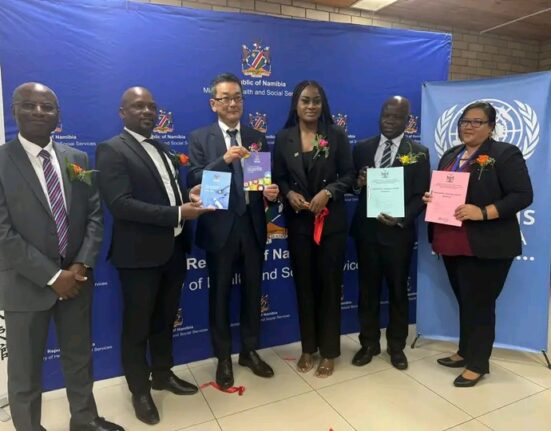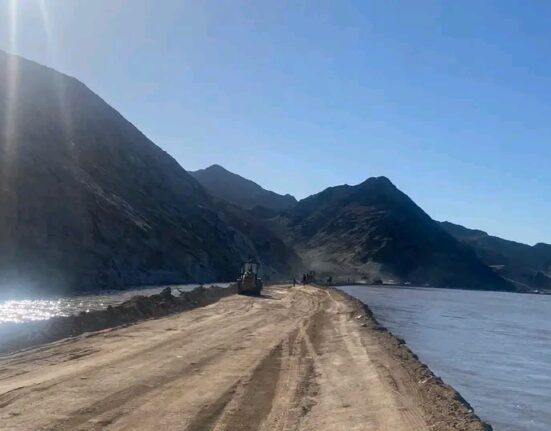In recent years, the concept of volunteer tourism, often referred to as “voluntourism,” has gained significant traction worldwide. This unique form of travel combines tourism with volunteering, allowing travelers to contribute to local communities and environmental conservation while exploring new destinations. In Namibia, volunteer tourism has emerged as a powerful business model that benefits both travelers and the communities they engage with. This article will delve into how volunteer tourism has transformed Namibia’s tourism landscape, creating sustainable development opportunities, fostering cultural exchange, and promoting social good.
What is Volunteer Tourism?
Volunteer tourism refers to travel that combines the joy of exploring new destinations with volunteering for community development, environmental conservation, or humanitarian projects. Unlike traditional tourism, which focuses on leisure and sightseeing, voluntourism offers travelers the chance to give back, participate in meaningful activities, and leave a positive impact on the host community.
In Namibia, volunteer tourism has flourished, offering a range of opportunities for visitors to get involved in projects related to wildlife conservation, education, healthcare, infrastructure development, and sustainable agriculture. Volunteer tourists often stay in local communities or conservation areas and contribute their time, skills, and resources to support local initiatives.
Why Namibia is a Prime Destination for Volunteer Tourism
Namibia, with its rich natural beauty, unique wildlife, and diverse cultures, is a prime destination for volunteer tourism. The country’s tourism sector has seen consistent growth, and voluntourism has become an integral part of this expansion. Namibia’s welcoming communities, coupled with its urgent conservation and developmental needs, create an ideal environment for volunteer tourists to make a real difference.
Several factors make Namibia an attractive voluntourism destination:
- Rich Biodiversity and Conservation Needs: Namibia is home to a variety of ecosystems, including deserts, savannas, and wetlands, each supporting unique wildlife species. The country’s commitment to conservation, including community-based wildlife management programs and the establishment of national parks, has created opportunities for volunteers to get involved in wildlife protection, anti-poaching efforts, and habitat restoration.
- Cultural Diversity: Namibia is home to numerous ethnic groups, including the Himba, San, Herero, and Ovambo people. These communities offer volunteer tourists the chance to immerse themselves in rich cultural experiences while contributing to community development projects that aim to preserve traditional customs, improve local infrastructure, and promote education.
- Economic and Social Challenges: Like many other African nations, Namibia faces challenges such as poverty, limited access to education, and healthcare disparities. Volunteer tourism has become a way for travelers to support community initiatives that focus on improving the quality of life for marginalized communities.
The Benefits of Volunteer Tourism for Namibia
Volunteer tourism offers numerous benefits to Namibia, particularly in terms of sustainable development, community empowerment, and environmental protection. Here are some key ways that voluntourism has positively impacted the country:
1. Support for Conservation and Environmental Protection
Namibia is widely recognized for its commitment to conservation, with several national parks and protected areas dedicated to safeguarding the country’s unique wildlife. The government, together with NGOs and local communities, has established successful wildlife conservation programs aimed at protecting endangered species such as rhinos, elephants, and cheetahs. Volunteer tourists often play a crucial role in these programs by assisting with wildlife monitoring, habitat restoration, and anti-poaching patrols.
One of the most popular voluntourism initiatives in Namibia is the opportunity to work with endangered desert-adapted elephants in the Kunene region. Volunteers assist with tracking and monitoring elephant populations, as well as conducting research on their behavior and migration patterns. This data is essential for formulating effective conservation strategies and ensuring the long-term survival of these iconic animals.
2. Empowering Local Communities
Volunteering in Namibia allows tourists to engage directly with local communities, supporting projects that improve education, healthcare, infrastructure, and access to clean water. Many organizations and NGOs in Namibia offer opportunities for volunteers to teach English, assist with building schools, support health clinics, or help with agricultural projects aimed at increasing food security.
By participating in these projects, volunteer tourists help empower local communities, providing both immediate assistance and long-term benefits. For instance, volunteers who work in schools or orphanages can help improve the quality of education and create a better future for young Namibians. Likewise, volunteers involved in water sanitation projects help provide essential resources for rural communities, significantly improving health outcomes.
3. Promoting Cultural Exchange and Awareness
Volunteer tourism also fosters cultural exchange, allowing travelers to immerse themselves in Namibia’s diverse heritage. This not only enhances the voluntourism experience but also encourages mutual understanding and respect between tourists and host communities. Volunteer tourists have the chance to engage with Namibia’s indigenous groups, learn about their traditions, and contribute to preserving their culture.
In return, locals gain insights into different ways of life and the benefits of global cooperation. Cultural exchange through volunteer tourism is a two-way process that enriches both travelers and the communities they work with, promoting tolerance, understanding, and cooperation.
4. Economic Benefits for Local Economies
Volunteer tourism contributes to Namibia’s economy by attracting international visitors who spend money on accommodations, food, transportation, and activities. Many volunteer tourists choose to stay in remote areas, which helps generate income for local businesses and provides much-needed financial support to small communities. In addition, volunteer organizations often hire locals as guides, project managers, and support staff, creating job opportunities and fostering sustainable economic growth.
Furthermore, volunteer tourism has a multiplier effect on Namibia’s economy. As international travelers visit local communities and participate in development projects, they help raise awareness about Namibia’s natural beauty and cultural heritage, encouraging further tourism and investment in the region.
5. Long-Term Impact and Legacy
The impact of volunteer tourism in Namibia extends beyond the duration of a volunteer’s stay. Volunteers often return home with a greater understanding of Namibia’s social and environmental challenges, which they share with others, helping to raise global awareness about the country’s needs. In many cases, volunteers continue to support the projects they worked on through fundraising, advocacy, and other forms of assistance.
The long-term legacy of volunteer tourism in Namibia lies in the sustainable change it fosters. By contributing their skills and resources, volunteer tourists help build the capacity of local organizations and communities, ensuring that their efforts continue to have a positive impact even after they have left.
Challenges and Ethical Considerations in Volunteer Tourism
While volunteer tourism in Namibia has brought significant benefits, it is important to acknowledge the challenges and ethical considerations associated with this model. The effectiveness of voluntourism depends on how well projects are managed, how volunteers are trained, and whether local communities genuinely benefit from the initiatives.
Critics of voluntourism argue that some programs may unintentionally perpetuate dependency or disrupt local economies by attracting resources away from other essential services. To address these concerns, it is crucial for voluntourism organizations to collaborate closely with local communities, ensuring that projects are designed and implemented in ways that align with local needs and priorities.
Additionally, responsible voluntourism requires tourists to engage in ethical practices, such as respecting local cultures, understanding the limitations of their impact, and prioritizing community-led initiatives over short-term solutions.
The Future of Volunteer Tourism in Namibia
As Namibia continues to position itself as a leader in sustainable tourism, volunteer tourism is likely to play an increasingly important role in the country’s development. The demand for responsible travel experiences, combined with the growing number of voluntourism organizations in Namibia, ensures that this sector will continue to expand, offering more opportunities for travelers to contribute to meaningful change.
Namibia’s commitment to environmental conservation, community empowerment, and cultural preservation aligns with the values of volunteer tourism, making it an ideal destination for travelers looking to make a positive impact. As the voluntourism industry grows, it will further strengthen Namibia’s position as a global leader in sustainable tourism and community development.
Volunteer tourism in Namibia has proven to be a powerful business model that combines economic growth, environmental conservation, and social good. By offering travelers the chance to make a positive impact on local communities and ecosystems, volunteer tourism has become a cornerstone of Namibia’s tourism strategy. As the industry continues to evolve, Namibia stands to benefit from the long-term economic, social, and environmental benefits that voluntourism brings, creating a more sustainable and equitable future for all.













